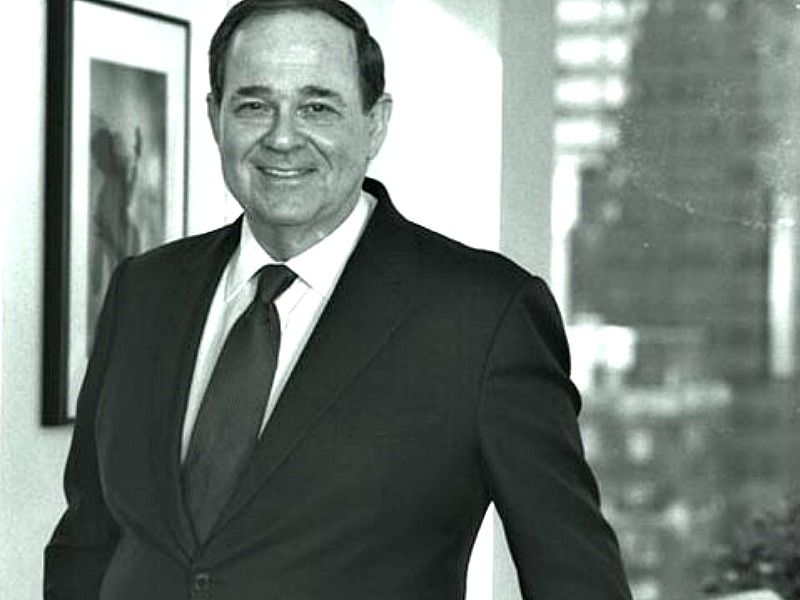Paul Holmes 22 Mar 2017 // 12:09PM GMT

NEW YORK—Gershon Kekst left Ruder Finn to launch Kekst and Company in 1970, and when he told the story of how his new firm came to be a pioneer in the financial communications space—and the high-stakes mergers and acquisitions arena in particular—he like to claim it was an accident, based on the fact that his first clients were in the financial arena.
But Kekst was surely destined to deliver public relations advice in the C-suite. The combination of calm, wisdom and rock-solid integrity that informed his counsel made him a huge asset in any crisis, and his ability to hold his own alongside bankers and merchant bankers meant he was never out of place in the boardroom or the CEO’s office.
Kekst, founder and honorary chair of Kekst and Company and a leading figure in the public relations industry for more than 50 years, died last week after a lengthy illness. He was 82.
He helped to invent modern M&A communications when—working alongside law firm Skadden Arps, a frequent partner—he created the so-called “Jewish dentist” defense, mobilizing the customers of dental equipment manufacturer Sterndent to oppose an attempted takeover. It was the first time the grassroots techniques of public relations had been employed to turn the tide in a financial transaction.
“Gershon Kekst had an enormous impact on the public relations business,” said his friend and mentor, the late Joseph Flom of Skadden Arps. “He was a trusted advisor to so many people, and he brought a unique sense of language and incredible wisdom and judgment.”
For the next 40 years, the firm remained a leader in the financial communications arena, topping the US ranking of M&A advisors repeatedly, almost always on one side of the major transactions of the day against the likes of Hill & Knowlton and Adams & Rinehart; then against similarly-focused US firms such as Abernathy MacGregor, Sard Verbinnen and Joele Frank; and more recently against global players Brunswick, FTI and Finsbury.
He worked closely with Martin Lipton and his partners at Wachtell Lipton helping to defend McGraw-Hill from an unsolicited bid by American Express and was instrumental in defending Mead Corporation’s defense against a hostile takeover attempt by Occidental Petroleum. He also helped Chrysler fend off Kirk Kerkorian's unwanted bid; represented both General Electric and PaineWebber in their deal to dispose of the remains of Kidder Peabody; advised both parties in the Walt Disney-Capital Cities/ABC merger; helped to create TimeWarner Corporation; and advised KKR in its pursuit of RJR-Nabisco.
While maintaining leadership in the M&A arena, Kekst diversified his firm’s range of services to include broader investor relations, crisis and issues management, corporate reputation and employee communications counsel, insulating against market fluctuations. And he built up a senior leadership team of unprecedented depth, many of whom—Lawrence Rand, James Fingeroth, Jeffrey Taufield, Robert Siegfried--remained with the firm through four decades.
In 2008, Kekst and Company was sold to the Publicis Groupe, a Kekst client for more than 20 years, and a year later Kekst stepped down from his day-to-day leadership of the firm. According to Publicis chief executive Maurice Levy, “Gershon was one of the most admired advisors for Wall Street firms. He was wise, always spoke the truth, even as unpleasant as that can sometimes be, and over time became a trusted advisor whose opinion was sought after by CEOs, lawyers and bankers alike. He pioneered new avenues of PR and created the concept of strategic communication as we know it today.“
He was known for nurturing talent at all levels of the organization, and for instilling all those who worked alongside him with the same values that underpinned his own approach to PR: a focus on the client; an understanding of the unique challenge or opportunity; and partnering closely to deliver the experience and judgment to make a difference.
He was also deeply devoted to Jewish causes. For 18 years, he was chairman of The Jewish Theological Seminary’s board of trustees; he was chairman of the board at the Weizmann Institute in Rehovot, Israel, for nine years; and he also served on the boards of Brandeis University, the Corporation for Public Broadcasting-WNET Thirteen, Montefiore Medical Center, and the Schechter Institute of Jewish Studies in Jerusalem. He also was an honorary vice president of the American Jewish Committee, and was elected a Fellow of the American Academy of Arts and Sciences.
Brandeis University president Ron Liebowitz said Kekst “embodied the Jewish ideal of using one's gifts and talents to make the world a better place."
The son of a Hebrew teacher, Kekst, was born and raised in Salem, Mass., and educated at the University of Maryland, where he majored in psychology and developed an interest in radio journalism. “I didn’t want to be just a radio broadcaster, I wanted to be Edward R. Murrow,” he once told reporters. He soon realized that wasn’t going to happen, and so he joined Ruder Finn.
"Gershon’s knowledge and wisdom was remarkable, and he delivered his advice candidly but warmly," says Larry Kanarek, chair of the board of trustees at Brandeis University. "He cared about his clients, as he cared about all people, and he had a wonderful sense of humor. He was the consummate professional, a wonderful human being, a great leader and a real mensch, and Brandeis and the world will miss him."
Kekst is survived by his wife, Carol, and his sons, David and Joseph.


































.jpg)




.tmb-135x100.jpg)












